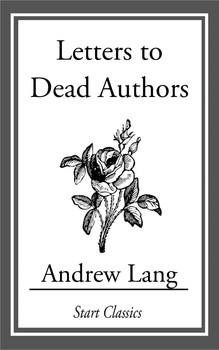LETTER–To Lord Byron
byLetter to Lord Byron begins with a spirited nod to your reputation—grand, scandalous, and still undecided in the hands of modern critics. The pen that writes to you carries both admiration and a grin, acknowledging that no figure in English letters has divided taste with such drama. Where Leigh Hunt once addressed you as “noble,” this letter does so with a blend of respect and irreverence, much like your own poetry—bold in tone, layered in intent. In the drawing rooms of your time, and now in academic corridors, your name still stirs conflicting emotions. There are those who brand you a poseur, a theatrical ego turned bard, while others defend your stormy lines as the pulse of Romantic truth. In any case, your genius continues to stir debate long after the sea at Missolonghi stilled your breath. That, in itself, is proof of greatness.
The letter unfurls with references to your judges—some fair, others frothing. We visit Matthew Arnold first, who, in his measured way, found in your poetry a force unmatched, a river cutting through the cluttered meadows of lesser verse. He did not worship you blindly, but he recognized the clarity and grandeur of your natural cadence, a gift not often granted even to celebrated poets. He sensed your power not in polish but in movement, in sweep, in emotional command. Contrast this with Swinburne, who, with a quill dipped in acid, dismissed your work as raw and insincere. He elevated Shelley to Olympian heights and consigned you to the shadows beneath. It is as if he expected philosophy from fire, and when he found heat instead of structure, he turned cold. Swinburne’s prose on you, though sharp, is filled with the nervous energy of one too eager to dethrone. And perhaps that is telling.
Scherer, the Swiss critic, is dragged into the discussion like a scholar forced to dance. His assessments are dry, clipped, and utterly unfit for your fervent, theatrical soul. To him, your verses were neither restrained nor properly formed—an opinion that says more about his taste than your art. Critics like Scherer approach poetry as a system, while you lived it as a rebellion. They saw irregularity where there was rhythm, disorder where there was a deliberate break from stale symmetry. The letter turns its wit on them, likening Swinburne’s poetic authority to Offenbach’s claim to Beethoven’s throne. It’s satire, of course—but it carries a stinging truth. Those who fail to understand your pulse often misread your purpose. You never asked to be neat; you asked to be true.
There’s laughter in the margins of this letter, but there’s also admiration that runs deep. Yes, your Pegasus may have stumbled, and your rhymes may have wandered off course—but even so, you wrote with blood. The suggestion that you were only sincere in political topics is as amusing as it is inaccurate. Your exile, your fight for Greece, your disdain for hypocrisy—these were not performances but extensions of your unrest. The truth is, your voice cracked open the polite silence of English verse and let the storm in. You wrote not for approval, but for impact. And that distinction, often overlooked, defines your immortality. What other poet has survived so many dismissals with their readership intact?
The nature of literary greatness, as the letter suggests, is not easily caught in formulas or hierarchies. You were not the sculpted ideal; you were the flawed titan. You didn’t seek a heaven of form—you crashed through the ceiling. Critics have tried to fold you into the timeline neatly, to place your works beside Shelley’s as if poetry were a scale of precision. But poetry is not mathematics, and your verses remind us that beauty can arrive in shouts as much as in whispers. Even your self-caricatures served to disarm your enemies. You mocked yourself before others could. That was not weakness—it was strategic honesty.
This letter doesn’t attempt to resolve the controversy of your place in literature. It doesn’t declare you superior or inferior—it simply refuses to ignore the vibrancy you brought to verse. Your shadow still stretches across pages, whether cast by praise or rebuke. Modern voices rise and fall, but your echoes continue to stir readers who crave intensity over perfection. The paradox of your legacy is that it thrives in disagreement. In you, we find a poet who was both vulnerable and vengeful, elegant and explosive. The lines you left behind may not always be measured, but they are unforgettable.
So the letter ends not with a verdict, but with a grin. Let the critics march on with their tidy definitions. You will be read not because you obeyed, but because you dared. That, Lord Byron, is the final measure of literary endurance—not precision, but persistence. Not consensus, but continued relevance. And in that, your flame still dances where others have long gone cold.

